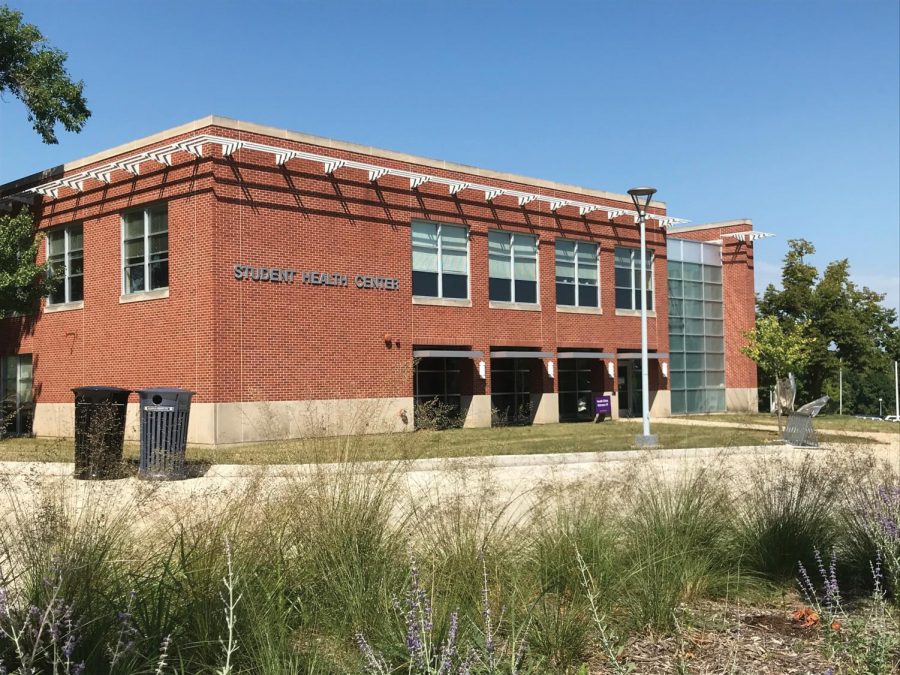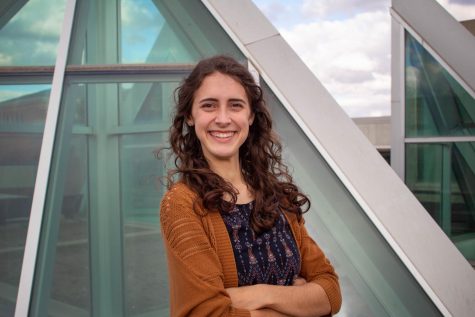UNI continues adapting to COVID-19
Aug 27, 2020
After Iowa’s two other public universities released the number of positive COVID-19 cases reported on their campuses this week, UNI plans to begin releasing COVID-19 information on Friday.
“Beginning Friday, university data related to COVID-19 will be posted at forwardtogether.uni.edu,” the university’s official Twitter account stated in replies to several tweets asking for transparency in regards to the presence of COVID-19 on campus.
UNI will become the last of Iowa’s three Regents universities to release campus COVID-19 data. According to the Cedar Rapids Gazette, the University of Iowa on Monday reported 107 students and four employees have self-reported positive tests since Aug. 18.
Meanwhile, Iowa State reported Monday that 130 students, staff and faculty members tested positive during the first week of classes, according to the Des Moines Register. This followed baseline testing during ISU’s two-week move-in period, during which 175 students had already tested positive.
In a New York Times survey of more than 1,500 American colleges and universities, UNI is reported as having 9 cases of COVID-19. However, the Times noted that the data in the survey includes all reported cases since the start of the pandemic, meaning that that number may not be representative of the current number of cases on campus.
In addition to preparing for the release of the numerical data on Friday, the university has taken several steps in the past week in hopes of mitigating the spread of the virus.
Panther health check
Beginning Monday, Aug. 25, all students, faculty and staff are asked to complete a brief Panther Health Check survey before leaving their dorm room or arriving at UNI’s campus or facilities each day.
The survey is designed to help identify members of the campus community exhibiting potential COVID-19 symptoms, as well as those who have tested positive or been in close contact with someone who has tested positive. After completing the survey, individuals receive a message either clearing them to come to campus or advising them to take different health-related steps.
Student safety announcement
UNI administration has also moved to address issues of student behavior off-campus.
After multiple photos featuring maskless crowds of students outside bars on College Hill circulated on social media over the weekend, President Mark Nook addressed the issue in an email on Aug. 25.
Nook called the images “very concerning and disappointing” and stated that students who visit crowded places off-campus where wearing of face coverings and physical distancing are not being practiced will be subject to the student conduct process. This can result in suspension from the university.
Such actions, Nook wrote, violate the commitment students made during the required Protecting our Panthers COVID-19 training course, which he emphasized applies to behaviors off-campus as well as on-campus.
|
“We can and will take action to hold students who fail to fulfill our commitment to public safety accountable,” Nook wrote. “We are requesting your cooperation so that punitive actions are not needed.” Nook’s email follows a similar statement by Iowa State University President Wendy Wintersteen on Aug. 21. University of Iowa President Bruce Harreld has not released such a statement at this time. |
CONTACT TRACING AND QUARANTINE
Finally, the university has begun contact tracing and quarantine for students who have been exposed to others who have tested positive for COVID-19.
According to information provided by Annie Karr, Assistant Director of Marketing and Conference Services with the Department of Residence, students who test positive will be required to isolate for 14 days. If they live on-campus, this isolation period will take place in one of UNI’s designated isolation units, which Karr said are mostly located in Campbell and Noehren Halls.
“We do not have any residents living in close proximity of those areas within those halls,” Karr wrote in an email to the Northern Iowan, although she added that students in isolation may be sharing a bathroom with other students in isolation.
Meanwhile, any students who have been in contact with a student who tests positive, such as a roommate or, potentially, a classmate, are required to quarantine for 14 days.
“Isolation is for those who tested positive and quarantine is for those who came in contact with someone who tested positive,” Karr explained.
This was the case for a UNI junior who asked to remain anonymous, who was called by the Student Health Center on Saturday, Aug. 22 and informed that she was in contact with someone who tested positive on Monday, Aug. 17th. Therefore, she needed to quarantine for two weeks past her contact date – until Tuesday, Sept. 1.
“I was shocked, a little upset and couldn’t believe how fast this had happened,” she said.
Since she lives in Panther Village, she is able to quarantine in her own room, and since she was only exposed, not tested positive, her roommates do not need to quarantine. However, she cannot leave her individual room without a mask or be in the kitchen with her roommates.
She has been keeping up with classwork virtually and said the Dean of Students helped her contact her professors about her absence. However, the situation is “stressful,” she said.
“If you think about how you have to isolate too much, you start to get sad (and) feel alone,” she said. “Overall, I am doing well, but I hope that I don’t have to do this again.”
Karr confirmed that the DOR plans to allow students to remain on campus if all classes move to a fully online mode of delivery at any point during the semester.
Asked if dining center operations and restrictions on student movement within dorms would be affected at that point, she stated that the DOR would “evaluate our housing operations based on the circumstances at that time.”









